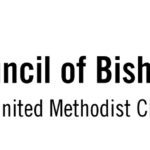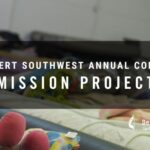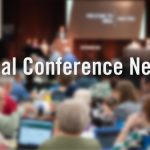The way God has designed our world amazes me! Living in the desert, I am especially appreciative of trees tough enough to live in our climate. One of my all-time favorite trees is the Desert Willow. Last year I gave a Desert Willow to my wife as a gift. Part of the gift was that I planted it, which was a challenge with our hard soil! When our Desert Willow dropped all of it’s leaves over the winter, I wondered multiple times if it was still alive. The bare branches did not look very impressive. How much of the life of a tree is stored deep within its roots? I was over-joyed (OK, I live a very simple life) when I saw the first leaves start to bud on our Desert Willow. Now it is filled with leaves, and this week has started blooming.
I was far less concerned about our two Bougainvilleas. It gets cold enough here in Sahuarita that they die back to look just as dead as the Desert Willow. I know from experience, though, that being well-established they are quite hardy. The bigger risk is when they are newly planted. My strategy is to cut them back in the Spring so that we will get a lot of new growth. Without cutting back, they will leaf out on old branches. Both of my Bougainvilleas have grown about three feet in the last month.
One of my biggest surprises is the pot where last summer I grew four Vincas (a kind of flower) that got quite large. As expected, they died during the winter. I cut off the stems, while leaving the roots. This spring I planted two new Vincas, while witnessing the four “dead” Vincas sending up new plants. The big surprise, though, came from the hundred seedlings growing in the pot!
Where can seeds grow? This last week I read that Dandelions are not native to North America. They were introduced by European immigrants. I have lived in five states, and they all have Dandelions! How many of us have blown on Dandelion seeds?
Dandelions teach us about adaptability. It appears that the Roseate Spoonbills of Southern Florida (these are large birds) have been paying attention to this lesson. I read that in response to climate change their numbers are growing. The Roseate Spoonbills are traveling farther north to find new breeding grounds. This might save their species, since their habitat in southern Florida has been disappearing.
Isn’t it interesting how United Methodism has been spreading in other parts of the world, like Africa, while it has been decreasing in the United States for decades? I’m hearing a lot of predictions about the impending death of United Methodism. I think, though, that we are underestimating the depth of our United Methodist roots. I believe that God can bring a lot more life out of United Methodism than we can currently see.
In a surprising twist, I find myself excited about the future of Methodism in the United States. In addition to the potential of the United Methodist Church, I think our current United Methodist climate change is going to result in a lot of adapting and seed-planting. Is it really a bad thing if new Methodist denominations start to sprout? I don’t think so. There are clearly people the United Methodist Church is not positioned to reach. Doesn’t it make sense to encourage new Methodist denominations who have a better chance of reaching them?
I’m finished grieving for the United Methodist Church, and I’m not interested in a winner-take-all fight. My plan is to bless all of the people who see their future staying with the United Methodist Church. I love you, and you are family! I’m also going to bless those who find their futures in new directions, including starting new Methodist denominations. You are family, and I love you!
With our faith focused on God, I believe that Methodism’s future is bright. I have no doubt that God is getting ready to amaze us!
Your brother on the journey, Mark





